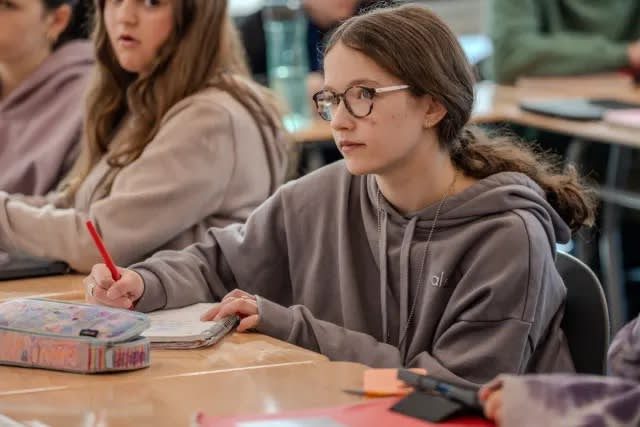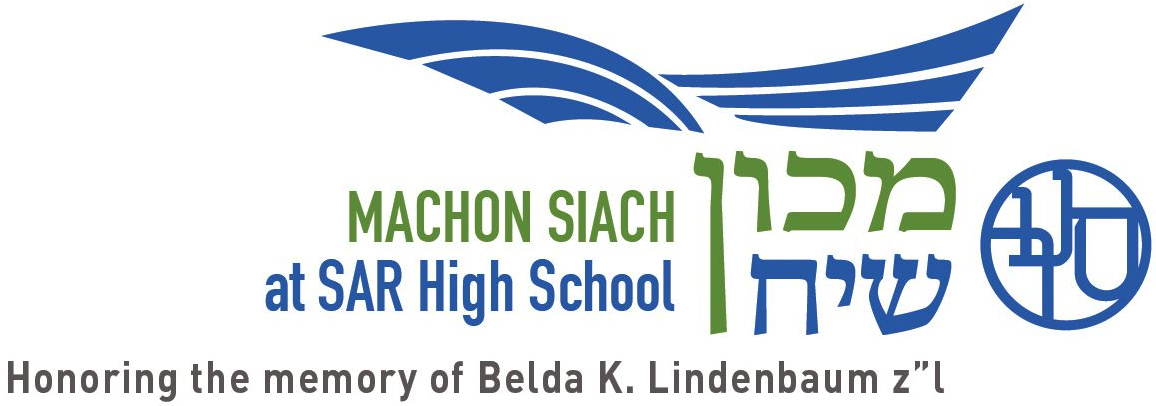
The World is a Narrow Bridge: Learning Empathy from Fear
In Judaism we have a tradition to be brave even at our scariest moments which we’ve unfortunately had a lot of. A song we often sing גשר צר מאוד highlights this concept. However a recent experience made me rethink this teaching.
We were in the middle of biology class when we heard the announcement. A robotic voice abruptly interrupted my teacher, repeating “lockdown…lockdown.” We sort of laughed as my teacher calmly turned off the lights and directed us to the farthest corner from the doors, assuming it was nothing more than a drill. But with each passing minute, our anxiety escalated more and more. Where was the security? What was happening? When would this end? Eventually, my friend closest to the emergency door leading to the roof grabbed the handle, and we all turned from sitting to crouching so we would be ready to jump up and escape. We were on the third floor – the lowest floor of classrooms – which meant the shooter would probably find us first, but it also meant that we would survive if we jumped off the roof. Reflecting back, it’s hard to believe that thoughts like those were how I comforted myself during the lockdown.
No word can capture what I was feeling during those ten minutes. My friends were crying and texting their parents messages I hope I will never read again. My hands were shaking. I was davening. I remember realizing how dangerous the situation was and immediately having a weird and frantic moment of self reflection. I remembered the hostages and decided I was a horrible person for not praying for them more. I thought about my life and worried that I hadn’t accomplished enough yet.
The seconds couldn’t have gone by slower, but about ten minutes after the alarm, our principal got on the loudspeaker and told us we were okay. “Baruch Hashem, it was a false alarm.” We didn’t know what to think. We rose from the dark corner in hysterics; some of us couldn’t stop talking while others couldn’t say a word.
When the lockdown alarm first sounded, I wasn’t as surprised as I might have been. Because of the war in Israel and the increase in antisemitism, the possibility of a shooter targeting a deeply Zionist school was very believable, and I didn’t think twice before jumping to conclusions.
Reflecting on the experience a bit later, I cherished the relief that luckily everything was fine, and the entire ordeal had simply been a false alarm. At the same time, I thought about how Israelis aren’t experiencing the relief of false alarms. Even when they survive one scary incident, they can’t rest knowing that more attacks are on their way. Speaking with an Israeli friend the next day, I told him how scared I’d felt, and he responded with a shrug. “I’ve been through much worse.” Honestly, I’m overwhelmed with guilt that I felt so scared in the corner of my classroom when Israelis experience even more intense fear every day.
I think about Israel every day, but I was never able to understand the reality of Israeli civilians’ lives when their country is at war. I got a small taste of this during the drill, something that speakers I listened to and news articles I read were not able to convey.
I am deeply appreciative to my teacher, who, in the middle of the lockdown, explained to us in a whisper to prepare to sneak out the emergency door. I know it was just as scary for her as it was for us, but she managed to prioritize our safety despite her own anxiety and knowing her children were in the building as well. After the lockdown, she helped us process even though she had just as much to work through, and she let us decompress for the remainder of class instead of teaching. She understood what we needed, and I’m very grateful to her. Teachers who care about their students’ emotional well being and not only their education alone are very valuable, and it was incredible to watch my teacher prioritize our reactions at such a scary time.
As I’ve thought about this I began to see that I disagree at least in part with the principle of גשר צר מאוד. The false alarm taught me that when scary things happen it’s important to let them affect you. This experience gave my entire school the opportunity to better understand how Israelis feel how tense this war is and how lucky we are to be alive.
Editor’s Note: This article was recently featured in a student-focused issue of HaYidion, a journal published by Prizmah: The Center for Jewish Day Schools. We are reprinting it here with Prizmah’s permission so it can reach an even wider audience.



